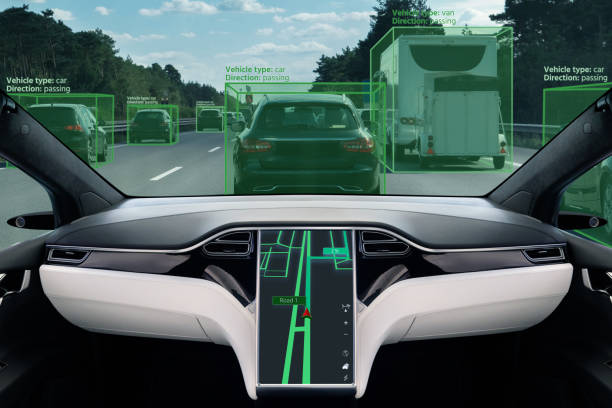Title: Decoding the Legal Labyrinth of Autonomous Vehicle Regulation
Introduction: As self-driving cars transition from science fiction to reality, lawmakers and regulators face unprecedented challenges in crafting a legal framework for this revolutionary technology. This article delves into the complex world of autonomous vehicle regulation, exploring the intricate legal issues that arise as we navigate the intersection of artificial intelligence and transportation law.

Liability Conundrums in the Age of Self-Driving Cars
One of the most vexing legal challenges posed by AVs is determining liability in the event of an accident. Traditional automotive law assigns fault based on driver negligence, but this paradigm breaks down when there is no human driver. Some legal experts propose a shift towards product liability, holding manufacturers responsible for AV-related accidents. Others suggest a no-fault insurance system specifically designed for autonomous vehicles. As courts grapple with these issues, new legal precedents are likely to emerge, reshaping the landscape of personal injury law.
Data Privacy and Cybersecurity Concerns
AVs generate and process vast amounts of data, raising significant privacy and security concerns. The legal community is grappling with questions such as who owns the data collected by AVs, how it can be used, and what safeguards must be in place to protect it from cyber threats. Some lawmakers advocate for stringent data protection regulations similar to the European Union’s General Data Protection Regulation (GDPR), while others argue for a more flexible approach to foster innovation in the AV industry.
Ethical Dilemmas and Programming Choices
The programming of AVs raises profound ethical and legal questions. How should an AV be programmed to respond in a situation where harm is unavoidable? Should it prioritize the safety of its passengers over pedestrians? These ethical dilemmas have legal implications, as courts may need to assess the reasonableness of an AV’s decision-making algorithms in liability cases. Some jurisdictions are considering legislation that would require AV manufacturers to disclose their ethical programming choices, sparking debates about transparency and accountability in AI decision-making.
Regulatory Challenges for Cross-Border Travel
As AVs become more prevalent, the issue of cross-border travel presents unique regulatory challenges. Different countries and even different states within the U.S. may have conflicting AV laws and standards. Legal experts are exploring various approaches to harmonize these regulations, including international treaties, reciprocal recognition agreements, and the development of global AV standards. The resolution of these cross-border issues will be crucial for the widespread adoption of AVs in international commerce and tourism.
The Role of Insurance in the AV Ecosystem
The insurance industry is undergoing a paradigm shift in response to the rise of AVs. Traditional auto insurance models based on driver risk profiles become obsolete in a world of self-driving cars. Legal experts and insurance professionals are working to develop new insurance frameworks that account for the unique risks associated with AVs. Some proposals include usage-based insurance models, manufacturer-provided insurance, and hybrid systems that combine elements of both. The legal underpinnings of these new insurance models will need to be carefully crafted to ensure adequate protection for all stakeholders.
Balancing Innovation and Regulation
As lawmakers grapple with these complex issues, they face the challenge of striking a balance between fostering innovation and ensuring public safety. Overly restrictive regulations could stifle the development of AV technology, while a lack of oversight could lead to unsafe vehicles on the road. Legal experts are advocating for adaptive regulatory frameworks that can evolve alongside the technology, potentially incorporating concepts such as regulatory sandboxes and iterative rulemaking processes.
The legal landscape surrounding autonomous vehicles is rapidly evolving, presenting both challenges and opportunities for lawmakers, regulators, and legal professionals. As we navigate this uncharted territory, it is clear that the development of a comprehensive and flexible legal framework for AVs will be crucial in realizing the full potential of this transformative technology while safeguarding public interests. The coming years will likely see significant developments in AV law, shaping the future of transportation and setting precedents that may influence other areas of emerging technology regulation.






